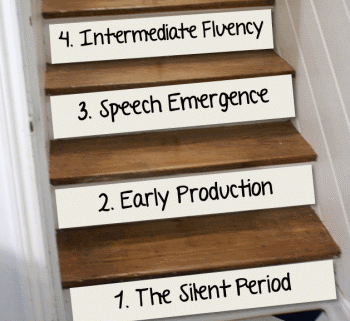The 5 Stages of Second Language Acquisition
During childhood, the brain is more receptive to language learning than at any other time in a person’s life and starting foreign or second language learning early sets the stage for a child to develop advanced levels of proficiency in one or more languages. It is also increasingly being seen as a necessary 21st century skill set. Apart from the extensively researched and recognised cognitive benefits from learning one or more languages, doing so as a young child dramatically improves the development of a near-native pronunciation and language intonation.
More and more parents are accepting that knowledge of a language other than English (LOTE) can also enrich their child’s understanding and acceptance of other cultures, and the attendant future job opportunities it can bring in a world being brought ever closer together by increasing globalisation. So it’s no surprise that they are choosing to raise their child/ren as bilingual and/or give them the opportunity to learn a foreign language.



